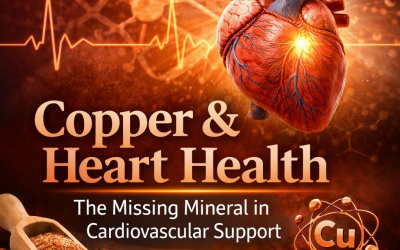Discover the Power of Potassium
Enhance Your Muscle Health and Recovery
Explore how potassium plays a crucial role in boosting muscle performance and speeding up recovery.
The Essential Mineral for Athletes
Potassium: The Unsung Hero of Muscle Health
Potassium's Vital Role
How Potassium Powers Muscle Function
Potassium is critical for conducting electrical signals that facilitate muscle contractions and nerve communication. It works in tandem with sodium to maintain the electrical gradient necessary for muscle movement. Without sufficient potassium, muscle weakness and cramps can occur, disrupting performance.
Potassium: Key to Muscle Efficiency
Proper hydration is essential during exercise, and potassium helps maintain this balance by replenishing electrolytes lost through sweat. This ensures muscles remain hydrated, reducing fatigue and enhancing endurance.
How Potassium Enhances Muscle Recovery
Potassium plays a pivotal role in muscle recovery by ensuring efficient nutrient delivery and waste removal. After intense workouts, muscles undergo repair processes that require a steady supply of nutrients. Potassium aids in this by promoting proper blood circulation, which facilitates the transport of essential nutrients to muscle tissues. Additionally, potassium assists in the removal of metabolic waste products, such as lactic acid, which accumulate during exercise and contribute to muscle soreness. By supporting these processes, potassium helps to accelerate muscle repair and reduce recovery time.
Another critical function of potassium in muscle recovery is its role in glycogen storage. Glycogen serves as a primary energy source for muscles during physical activity. After exercise, replenishing glycogen stores is vital for recovery and preparation for future workouts. Potassium works in conjunction with insulin to drive glucose into muscle cells, thereby supporting the restoration of glycogen levels. This process not only aids in energy replenishment but also enhances overall muscle recovery, allowing for improved performance in subsequent training sessions.
The Necessity of Potassium Supplementation
Why You May Need Potassium Supplements
While a balanced diet rich in potassium-containing foods can meet the needs of most people, athletes and highly active individuals often have greater potassium requirements due to increased electrolyte loss through sweat. In such cases, dietary intake alone might not suffice, making potassium supplementation an effective solution.
Supplementing with potassium can help maintain optimal electrolyte balance, prevent muscle cramps, and support muscle recovery, especially during periods of intense training or endurance events. Endurance athletes, weightlifters, and those engaging in high-intensity interval training (HIIT) may particularly benefit from potassium supplements to avoid performance dips caused by depletion.
However, potassium supplementation should be approached with caution. Excessive potassium intake can lead to hyperkalemia—a potentially dangerous condition characterized by irregular heart rhythms and muscle weakness. Therefore, it’s essential to consult a healthcare provider before starting any potassium supplements, particularly for individuals with kidney issues or those taking medications that affect potassium levels.
Potassium-Rich Foods for Muscle Health
Understanding Potassium's Impact
The Essential Role of Potassium in Muscle Health
Potassium is a vital mineral that significantly enhances muscle performance and speeds up recovery. It plays a crucial role in muscle contractions and nerve signaling, ensuring efficient communication for optimal physical activity. By maintaining fluid balance and preventing cramps, potassium supports sustained exercise performance. Additionally, it aids in replenishing glycogen stores and removing metabolic waste, which accelerates muscle repair and reduces post-exercise soreness.
Incorporating potassium-rich foods into your diet can greatly benefit muscle function and recovery. Foods like bananas, sweet potatoes, and spinach are excellent sources that help maintain adequate potassium levels. For those with increased needs, such as athletes, potassium supplementation may be necessary to prevent deficiencies and support intense training regimens. However, it’s important to consult with a healthcare provider before starting any supplements to avoid potential health risks.
Boost Your Muscle Health Today
Are you getting enough potassium to support your muscle performance and recovery? Evaluate your current intake and consider incorporating more potassium-rich foods into your diet. If you engage in intense physical activities, you might benefit from potassium supplements. Consult with a healthcare professional to determine the best approach for your needs and unlock your full athletic potential.








0 Comments